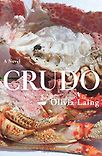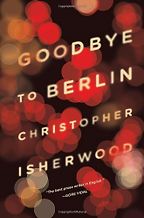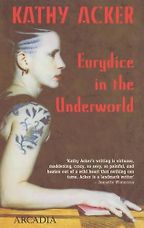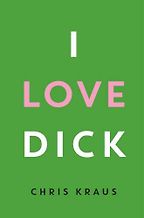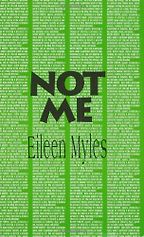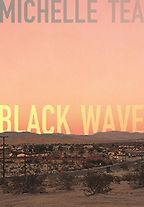Maybe we could begin by discussing your five recommendations as a whole. What unites them? Earlier you described them as all “autofiction, of one kind or another.”
I guess they all play around with or blur the boundaries between author and narrator, or author’s life and narrator’s life in many different ways. I hate the word ‘autofiction’. I find it quite unsettling when it’s applied to me, partly because the books that tend to be discussed are not books I’m massively interested in. But then I thought: these are books that I am really interested in, and that are doing exciting things that I suppose you could fit inside the definition of autofiction. They are experimenting in a lot of different directions.
Could we unpick this term ‘autofiction’ a bit more? What is usually seen to be doing? Why are you uncomfortable with it?
I think what makes me uneasy about it is the idea that you’re just basically transposing your personal life into fiction, like you just brought your diary along and changed some names. That’s interesting as an initial technique, one that might go somewhere else, but the idea of that as the endgame feels very limiting to me. Whereas I think all of these different writers are using personal experience and identity games to do quite different things—sometimes to be playful, sometimes to be political—and it feels to me that what they’re up to is more exciting and more expansive than the term autofiction tends to suggest.
On that question of identity games: Christopher Isherwood, one of the authors that we’re going to discuss, once said that ‘Christopher Isherwood’—the character bearing his own name—is “a convenient ventriloquist dummy, nothing more.”
That’s such bullshit! Christopher Isherwood is such a fascinating example of how complicated autofiction can be. In Goodbye to Berlin, he foraged from his own life to write a semi-fictionalised version of his own experiences, at first sexual and domestic and then political, in Weimar/Nazi-era Germany. But then, he writes this second book called Christopher and His Kind, in which he doesn’t use the first person. He has a character called Christopher, but what he’s actually doing in that book is unpicking the ways in which he invented and circumnavigated the truth in the first book. So I wanted Goodbye to Berlin as my first example partly because it’s the base text for Crudo. But, also, because I love the way that the more dishonest book uses ‘I’ and the less dishonest book uses ‘Christopher’ as an avatar.
The characters and setting of Goodbye to Berlin, during the collapse of the Weimar Republic, are now quite iconic—thanks in part to the success of the musical Cabaret, which is an adaptation of sorts. Sally Bowles appears in one episode, and was inspired by a friend of Isherwood. Was he a pioneer of this type of writing?
I think it’s such an old form. I don’t even want to speculate about where it starts because clearly Melville does it, and Proust. What writer doesn’t draw from their own lived experience? But, I think what is really interesting to me about Christopher, and maybe makes him the beginning of this legacy that I might try to fit Crudo in some way into, is that what he’s trying to do is document a domestic, erotic, intensely personal life and to show how it exists alongside and is eventually subsumed by a larger political reality.
“What writer doesn’t draw from their own lived experience?”
He’s not just writing out his diary; he’s using his own ultra-personal experience to try to get at what it feels like to inhabit the very beginning of what became seismic change in the world. To me that’s what’s most exciting about Goodbye to Berlin. It’s not so much about his experiences in the KitKatClub—although I love all that stuff—as how fascism can appear in a regular, ordinary society and how it can start seeping into every element of existence.
Put like that, his intentions seem to contradict that very famous line from Goodbye to Berlin: “I am a camera with its shutter open, quite passive, recording, not thinking.” That’s not really what he’s doing in that book.
I don’t think it’s passive. I think it’s very deliberate, active reporting. I’m working on a new book that is in part about Berlin just before the war, and Isherwood’s accounting is so exceptional. There’s this beach trip that happens in Goodbye to Berlin and then, again, in more diaristic way, in Christopher and His Kind. He describes hanging out on the beach each day and seeing people with little swastika flags around their beach encampment, and then noticing that someone has spelled out ‘Heil Hitler’ in pine cones. It’s a weird moment, the absolute cusp of change, and he catches it. You can feel people thinking, well, this could go in any direction, probably this is nothing and it will fade away. And yet, by the end of the book, Jewish department stores are having their windows smashed, and Christopher’s friends are being taken away and tortured. So he uses this very intimate tone in order to show you how fascism actually began.
Coming back to your own book Crudo, you’ve talked about wanting to capture the feeling of “chaos and perpetual disruption” from last summer. Is that one of the reasons why you alighted on this form?
Yes. I was trying to write something that was about violence and sexuality. And I couldn’t do it. I was starting to realise that the moment was shifting so rapidly that I couldn’t get the perspective I need to write the sort of nonfiction I normally write. That left me feeling very—jammed. At the same time I was reading Chris Kraus’ Kathy Acker biography, After Kathy Acker, and it described how Kathy Acker would go to the library, take a book, steal the contents and transpose it into the first person. That excited me. I thought: hold on, this might be a way through. If I can take this character, if I can steal ‘Kathy Acker’ as a perspective and apply her ‘I,’ her consciousness, to the moment that I’m inside, perhaps I can use that to accurately record what it feels like to inhabit this moment of intense political change. The idea—and this is also why I wrote it in real time—was to try and capture a moment as it unfolded in front of me, rather than writing a historical, objective account of a moment after it happens.
I think that’s what’s exciting about Christopher Isherwood’s “I am a camera” idea. It’s not so much the neutrality or the objectivity, which I don’t think he’s trying to do anyway, because it’s not a particularly neutral or objective account. It’s more the idea that you are opening a lens, you’re opening an aperture, and you’re allowing the world to roll in front of it. And then look at it at a later date. Expose it at a later date. That’s what feels exciting to me about Isherwood.
Absolutely. Maybe we can talk more about Kathy Acker, because she’s the author of your second choice, Eurydice in the Underworld. First of all, why did you pick this book, of all her work?
It’s funny with Acker, I think people have such a received idea of her. Her work does contain hyper-violence and hyper-sexuality; it can be very cartoonish and very choppy. But one of the things that I was really struck by when I went through my Kathy Acker season last summer and reread all her books is that they’re also intensely emotional. They have these lingering moods of grief and desolation, that lurk as atmosphere.
Eurydice in the Underworld is the one that I think deals with grief in the most straightforward way. In all Acker’s books, she steals an avatar, so she might be Pip from Great Expectations or she might be Don Quixote. She takes these personae and uses them to tell a story, but often the story is very much about her own existence and her own childhood, and at the same time about a kind of mythic girlhood in a world of violence, a world both like and unlike our world, our so-called civilisation that isn’t by any means civilised to all of its inhabitants.
Eurydice is particularly touching because it’s very much about Acker’s own experiences with breast cancer. She’s telling a story that happened to her and that is agonisingly painful. At the same time, she’s making it into a myth. She’s making it into a universal story about illness, death, descent. It’s so beautiful. I find it so moving. Did you like it? What did you think of it?
I loved it. It’s painful to read, actually. She talks about the still-raw scars where her breasts were, and there’s her partner—Orpheus—who started a relationship with her in this vulnerable position and then betrayed her. It has a heavy emotional weight, partly because I know it really happened. Do you think this conflation of the narrator and the novelist, adds to the impact of these stories? Knowing that she really felt these things?
Yes. I also think there’s something very economical about it. I think one of Acker’s stylish attributes is an incredible economy. She just doesn’t bother to make stuff up. I had a conversation with Chris Kraus where we were talking about having a horror of invention. Why not just use something real? Acker does that. She just takes whatever it is that she needs to create a scene or a scenario or an emotional state. Sometimes that’s from canonical works and sometimes it’s very much lifted from her own life. I feel like Eurydice has some cathartic power too, because we know that she did have breast cancer and that she did die of breast cancer. But, actually, it’s got a really similar tone to books that she wrote long before her diagnosis, as well. That idea of abjection, being an abject body, being a desiring abject body, and what that means, is something she had circled around her entire life.
“One of Acker’s stylish attributes is an incredible economy. She just doesn’t bother to make stuff up”
So, it adds some sort of charge, that we know the narrative is borrowed from her life, but actually, when she was doing things with The Story of O, say, has very similar material. Maybe the mood is slightly sharpened, but it’s very much a psychic territory that she’s been patrolling for a long time.
What I think is interesting is that, though the form of her writing is experimental, self-aware—which can have an alienating effect when you’re reading, making it difficult to forget you’re reading—it, to me, strikes me as somehow very real. I can recognise the protagonist’s way of thinking, however perverse, in myself.
That’s interesting. I feel like the experimental, surreal elements in Acker are an attempt to get at something real. She’s charting unconscious space, psychic space. It feels familiar, and even accurate, even though the content is so extreme. The same with Isherwood, he’s not really writing something that’s a realist novel in terms of having a plot or having a structure that comes to a resolution. What he is doing is capturing the texture of reality by logging the everyday ephemera along the way.
Acker really underscores that by refusing to make up proper, realistic characters. She just takes whatever characters she needs for a minute and then drops them again, converting them abruptly into somebody else. That constant morphing feels, to me, very exciting, but it is also a strategy to disrupt you as a reader. Not just for the sake of disruption, I don’t think. It’s to make you wake up in some sort of way.
You have a particular relationship with Kathy because you’ve been using her as an avatar in your own writing. You’ve said before that you have “a horror of confessional writing.” So how did seeing life through the prism of Kathy make it different?
I do! I think what deploying Kathy allowed me to do was steal freely from my own life. I could use all kind of experiences that were coming my way but I could regard them through a different consciousness, this exaggerated, cartoonish, super-anxious, super-paranoid consciousness—which, I should add, isn’t Kathy Acker either, but some sort of hybrid, fictional composite self. Doing that allowed me to make a painfully realistic account of what it felt like to be a person in this time, while keeping me well away from awful earnestness of memoir. The fractured consciousness was vital. I wanted to report on a moment but the hallmark of the moment was the fracturing of any steady consciousness, a perpetual sense of interruption, a dizzying simultaneity. It felt like a very difficult time to maintain a coherent sense of self, not least because of a social media and its performances. So an account that didn’t involve a fractured self wouldn’t have been an entirely accurate record.
That makes sense. But it is complicated. I mean … with autofiction more generally, as a genre, I have an uneasy relationship to it. Partly because I worry that I don’t read it in a sophisticated way. I suspect myself of being voyeuristic, that I’m too hung up on drawing a line between what’s fabricated and what’s real. Have you found that frustrating in the way that people read Crudo?
Yes. That was what I wasn’t going to say when you asked me earlier about reviews. But since you’re asking. I definitely haven’t noticed it so much from readers, but I’ve noticed that some reviews were very caught up in trying to figure out what was from my life, in a ‘gotcha’ kind of way. I mean, that seems like a fairly pointless exercise. Everything was from my life, unless it was from Kathy Acker’s. That’s kind of the point! That’s why is says “Kathy, by which I mean I” in the first sentence, to explain that this Kathy is me and now let’s move on to explore the world she’s experiencing. But reviewers literally trawled through my Twitter and Instagram to try and find what restaurant I’d eaten in on what day.
Oh, uncomfortable.
It was quite a strange experience because it wasn’t the question I thought would be asked about the book. The personal element wasn’t disguised. It’s not like I sent it out as a realist novel and then it turned out that I actually hadn’t made anything up. I’d sent it as out as something that is about real life now—that is, trying to record a moment in time in a particular way, for a particular reason, which is that I had an instinct darker times were ahead. I wanted, à la Isherwood, to try and record exactly this season of transition, and especially what it felt like to be inside it, with all the confusion and anxiety and grotesque contrasts between privilege and lack.
I suppose it ties in with celebrity culture, how fans are always trying to track what seem like mythic figures to real-life times and places.
Yes. Definitely. And I’m not immune to that. I remember when I was reviewing Sheila Heti’s book How Should A Person Be I was absolutely fascinated by the question: Well, is this all her? Is she really friends with this person? I googled the painter in it, Marguax Williamson, and thought, ‘Oh, she’s a really interesting painter.’ So I can see how you might go about it in that sort of way. But it was also a shock to me. Anyway, I’ve deleted Twitter now, so no one can dig through that particular trash-heap anymore.
Sheila Heti was exactly who I was thinking about; I remember reading somewhere that that when she was initially trying to sell How Should a Person Be, an editor told her, ‘this is the kind of book you should write when you and your friends are already famous.’ But now she is. She created it, that kind of fascination, almost as a literary experiment. Sorry, I’ve derailed us. We talked earlier about Chris Kraus…
This takes us very neatly to what I love about Chris Kraus. But, go on, ask your question.
We mentioned Chris Kraus earlier as an Acker biographer. She is also the author of your third choice, I Love Dick. So what is it about Kathy Acker that’s made her such a fertile source of inspiration for you and for other people in this field?
She’s an extraordinarily generous writer in terms of her legacy. She smashes the field open. She smashes open what it is possible to do. She smashes open what kind of rules you need to play by. She destroys concepts of originality. She’s original while she’s stealing. All of those things are so intensely liberating, I think, especially for women writers. It feels to me like it’s an invitation to invent, to take what you need, to make whatever it is you want to make. That kind of permissiveness still feels really, really radical to me.
Get the weekly Five Books newsletter
But what I was going say about Chris is that I find it particularly fascinating, in terms of talking about reactions to autofiction, that when people talk about I Love Dick—particularly critics—it seems as if the book is just somebody talking about their obsession with Dick. But the book isn’t that at all—it’s a totally different book! It’s so interesting to me how much she manages to smuggle into it. She uses this overarching narrative of Chris abjecting herself at the feet of Dick, or Chris trying to seduce Dick. And you get very caught up in that. Then, suddenly, she’s talking about torture in Guatemala, or she’s talking about Hannah Wilke, or she’s talking about all kinds of very complicated ideas about feminism, artistry, selfhood. Also, political situations in other countries, which I don’t think I’ve ever read about in a review. But yet it’s a really key part of it.
I think it was initially received pretty coolly, right? Critics were very hung up on the gossip of who exactly is Dick, that sort of thing.
Yeah.
But now it’s a celebrated text. What do you think has been behind its building reputation? Why does I Love Dick just keep getting bigger?
It’s the same thing that I just said about Acker, I think: Chris Kraus is a liberator. She makes something possible. When you read it, you think, I didn’t know I was allowed to do this. I didn’t know that I was allowed to write about these elements of my life. I think she writes about things that we are socialised as women to conceal, as if they will make us smaller and sillier as artists, instead of more powerful. Failure, abjection, not being hot in the right way, fights, illnesses, disappointments. All taboo. And then she shifts genre and tone so much. It’s practically got lectures tucked away inside it, along with letters and gossip and rants. So it has this sort of tonal shiftiness that’s very exciting, and yet it’s a novel. It’s packaged as a novel. It has the feeling of a novel, but it’s doing so much more than that. I just think on a structural, formal level, it’s this incredibly exciting thing.
“Chris Kraus is a liberator. She makes something possible”
I was just rereading the introduction in the reissue that I’ve got, by Eileen Myles, and they talk about Chris Kraus as somebody who’s opening a door and allowing so many more possibilities to exist. Particularly that she’s seizing female abjection and saying, ‘I’m telling this story, this is not a story being told about me.’ I think that’s probably the thing that’s made it so exciting to people over the last—what is it?—ten years that people have really been rediscovering it.
It’s interesting because the framework of this liberating text is a self-abasement exercise: correspondence with a man who rejects her.
She emerges triumphant.
It is ‘relatable,’ in that I think all of us have an element of that self-abasement in us, yet we want to be respected. We want to be known for our work. That’s a contradiction in every person.
Absolutely. It’s just a magnificent conjuring trick. That you could declare your abasement. Chris is a failure as a filmmaker, and she’s having this disastrous time. Her love affair’s falling apart. She thinks that her marriage to Sylvère is over. But at the same time, she does emerge victorious by virtue of writing this magnificent book.
It’s a sort of failure fantasy, isn’t it? That you can convert all of this into such a story, such a gleeful accounting of your own disaster that it might succeed on its own terms. And then the success took a very long time to arrive. I think people like that element of it too, that it exists against the odds in so many different ways.
She mentions Sophie Calle as an inspiration, I remember an interview with Calle that said something along the lines of: the worse the break-up, the better the art that comes out of it. There’s sense one can mine raw emotion from the ruins of your life, and create something of lasting value that way.
Artists also allow themselves to do these things that you’re not supposed to do, like becoming a stalker, which both Chris Kraus and Sophie Calle do. You can be creepy, or you can be kind of gross, or you can be somewhere that you’ve been told not to be, and you can make art out of that. There’s the artist Hannah Wilke, who Chris Kraus talks about as well, who was very beautiful, but yet made work that challenged what beauty meant, including these great self-portraits in which she sticks spitty little lumps of chewing gum to her face.
Five Books interviews are expensive to produce. If you're enjoying this interview, please support us by donating a small amount.
The idea that you can be grotesque in these different ways is so much a central lesson of Kathy Acker too. Expanding the field of expression is what feels exciting to me. Whereas, what troubles me about the idea of autofiction is, ‘oh it’s just some narcissist who can’t be bothered to make anything up, writing down their life, and palming it off on us as fiction.’ None of the autofiction that excites me does that.
You mentioned Eileen Myles, earlier, who is the author of Not Me, the first poem from which you’ve recommended as your fourth text. It’s called ‘An American Poem,’ and has become well known. In it, Myles discusses their Boston roots (true) and confesses to being ‘a Kennedy’ (false). Can you tell me more about Myles and their work?
I think Myles is probably my favourite living poet. I love ‘An American Poem’ because it turns the autofiction thing on its head. It uses an ‘I,’ and a very confessional sounding ‘I,’ but it’s a completely invented ‘I.’ It’s not Eileen Myles’s own background at all. What’s really funny about it is that afterwards people used to come up to Eileen and say, ‘I didn’t know you were a Kennedy. Are you really a Kennedy?!’
The cultural obsession we have with the ‘I’ and the purity of the ‘I’ makes us vulnerable to that kind of mistake. It’s the flipside of when you don’t use an ‘I’ and you use a made up name, but do use real material. In both cases, there’s some lurking sense that trickery is afoot and needs to be exposed. But I think that clunking, naïve reader is there in all of us. It’s like: ‘But you said it was ‘I’! You said it was ‘Kathy’? Which is it? Is this a true story or not??’
I find that kind of response, to which I’m absolutely not immune, endearing as well as frustrating. I guess we’d all like to be slightly more sophisticated readers than we’re quite capable of being, because we’re so curious about other people and we so much want to know what’s really going on in their lives.
Right, and I guess part of the discomfort with it, the worry, is that you’re going to misunderstand or you’re going to miss the point. Everyone’s very insecure about being able to read it properly.
Yeah. And: is it ironic, and is it supposed to be funny? Why are you doing it? There’s a lot of anger around it. I’ve been interested to see that. I think that fear must be at the root of it.
That reminds me of something from a discussion between you and Chris Kraus. Chris reminded you that I Love Dick was actually intended to be humorous.
I thought, ‘Say whaaaat?’ That was so funny. It was at an event full of young women, and they were so earnest about it, and I was so earnest about it, saying, ‘Chris you’re our queen!’ And Chris responded, ‘Guys, it’s a joke. It’s a grotesque joke!’ It wasn’t just me. Everyone was like, ‘What?!’ That was great. But that really gave me the same feeling I’ve been describing, of, oh, I’ve been a bad reader here. I’ve got too invested in the truth of this story to see the ways in which this is a subversive story or this is a playful story, or this is poking fun at the character of Chris as much as it is the character of Dick.
But that’s part of the same tendency, isn’t it? This desire to know the real story and to put your affection and attention and care into the right character. It is the naïve reader in us, which I think we all share, however sophisticated we might be capable of being. There’s another kind of reader in us, who very badly needs to know what’s real and what isn’t.
Right.
But coming back to Eileen, and this particular poem. It’s a perfect little novel. It does genuinely set up a character and put them out into the world and tell a fiction. At the same time, it also sneaks in all kinds of political content. Actually, reading it today, I realised a lot of the same utopian ideas crop up again in the fabulous ‘Acceptance Speech,’ which is in Eileen’s new collection Evolution. (There’s a great video of Eileen reading it at the London Review Bookshop at an event we did together at around the time of Trump’s acceptance speech. I prefer the counterfactual reality in which Myles is president, I must say.)
The Kennedy poem has got the same sort of political material —why are there homeless on the streets of Washington? But it’s also a Lydia Davis-style mini-novel, a one page novel.
It contains this idea of inherited wealth, inherited privilege, and gives angry flashes of the New York of that time, with Aids running rampant and the high levels of homelessness.
Yes. And it ends with a beautiful tribute to democracy: “We are all Kennedys.” There’s nobody who’s got so much swagger and who can so skilfully evade earnestness while still saying something real and heartfelt as Eileen. It staggers me how much they’re capable of doing that. They never sound earnest or over-sincere or too ickily heartfelt. And yet there’s always has this sort of whomp in the chest.
What else of Myles’ would you recommend that I read?
Oh, wow. The new book Evolution is spectacular and contains ‘Acceptance Speech,’ which I think is just one of the best poems of the last few years. And then I’m mad about Afterglow, which is a memoir about Eileen’s dog dying. It goes off in multiple directions. It’s just this strange explosion of a book and I found it so bewitching.
Your final book choice is Michelle Tea’s Black Wave. I’m part way through reading it now, and pleased you recommended it as it wasn’t on my radar at all.
I’m going to spoil it for you now. I’m sorry about that. It exists in two halves. In the first half, ‘Michelle’ is clearly closely related to Michelle Tea. The second half leaps forward in time and takes all of that textural detail that’s been built up about 1990s queer San Francisco society and throws it into a post-apocalyptic future, that’s quite possibly one we’re heading towards ourselves.
“Autofiction doesn’t need to be at all about one’s own life and times”
It’s got sci-fi elements, and it just feels like this is how exciting a work of autofiction can be. It doesn’t need to be at all about one’s own life and times. It can use that dense bedding of someone’s own personal reality to tell quite a different story from what has actually happened to them, or what they’ve actually experienced. It’s very Ackerish. Michelle Tea needed to have this character, so she stole all kinds of trappings from her own existence and then took it somewhere really unexpected. I’m trying to think, but I can’t think of anyone else who’s doing quite that with auto-fiction. It felt to me like another one of the multiple radical possibilities, rather than just the Knausgaard, ‘I’m going to tell you everything that actually did happen to me.’
Yes. I suppose Knausgaard, in his literalness, takes the polar-opposite approach.
It’s self-absorption, not necessarily in a negative way, but being completely absorbed in the true story of the self.
Right. Looking at this list of five books, there’s a lot that brings these writers together. Many of them come from the queer subculture…
All of them are really, aren’t they? They’re all connected. These are all people who know each other in various ways—perhaps not Isherwood because he’s a different generation—but otherwise it’s all people who are interconnected socially, but also by virtue of the kind of experiments they’re carrying out with writing. They’re all rooted in modernism, too, I think that’s the other thing. This list is really about the modernist novel versus the realist novel in various different ways. These don’t feel like post-modern experiments, so much as modernist experiments. Which is to say, they’re about consciousness.
They’re about what it means to experience the world. It really feels that they’re trying to find a way to make language chart human consciousness and the experience of existing in a particular moment in time. As opposed to mimetic realism that’s trying to tell a story about a person, or a family, or a culture, and to recreate the streets and sheets and clothes and attitudes in a painstaking, accretive way. You feel like these books are trying to capture what it feels like to experience it from the inside.
This experimental form seems like a natural home for people, for characters, who are living their lives experimentally, as well, who are pushing themselves to extremes.
Yeah, absolutely.
Living very rawly, perhaps. I mean, coming back to your title.
Certainly, Acker is somebody who lived an extremely raw, sort of self-decidedly raw existence. Also people who are forming community in different ways, trying to establish relationships in different ways. These are all writers, including Isherwood this time, who are setting themselves against a particular kind of society and a particular kind of culture and inventing alternatives. I mean, we could’ve talked about Virginia Woolf in this conversation. Orlando fits here, with its weird, fabular appropriation of Vita Sackville-West’s life. Is it bio-fiction, maybe? And Burroughs too. In a way, it’s a shame that we didn’t because I feel like he’s a missing link in the timeline we’ve drawn.
Why do you say that?
Because he was Acker’s mentor and because he was also playing this same sort of game. He was using elements from his own life in books that were simultaneously fantastical, that were pastiched from many different sources. He used the cut-up technique in order to create a different kind of realism, which was much more… I keep talking about psychic realism, by which I mean what it feels like to inhabit the interior of a culture, rather than the exterior of it. The dreamlife of a culture, its unconscious, rather than the physical streets and shops and houses, which is where the realist novel does its work.
To conclude our discussion, I was going to quote from Eileen Myles. In a Rolling Stone interview, she said: “Poetry will always be anti-capitalist because it’s waste, and that’s what we love about it … To write stories and make art that have things that aren’t all arrows pointing to the narrative.” Maybe this gets to the heart of what autofiction is.
Yeah. That has an erotic quality about it that’s very much the erotic of Myles’ work too. This sort of glorious overabundance that exists outside the capitalist exchange. I think that’s such a fantastic quote. I think it’s absolutely perfect for the kind of writing we’re talking about. Sexy waste, erotic excess, and also at the same time economical. Like I say in Crudo, this is art that helps itself to the grab-bag of the actual.
Interview by Cal Flyn, Deputy Editor
October 26, 2018. Updated: October 29, 2019
Five Books aims to keep its book recommendations and interviews up to date. If you are the interviewee and would like to update your choice of books (or even just what you say about them) please email us at [email protected]

